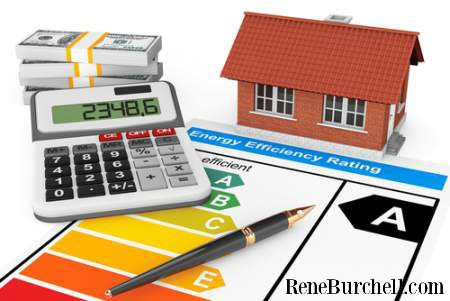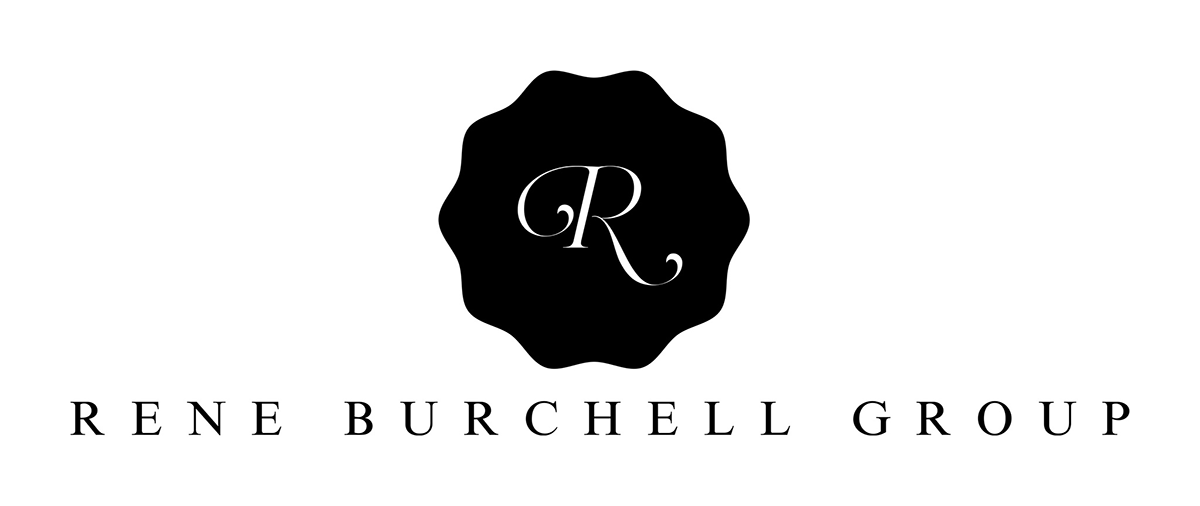You’ve got to flex some serious real estate super powers when you’re attempting to sell one piece of property and buy another simultaneously. The good news is, that temporary burst of multi-tasking energy is possible; people conduct tandem real estate transactions all the time. But if you’re going to conquer the goal of successfully selling your house while buying a new home, you’ve got to plan well in advance, do your homework, prepare your resources, and attack that beast systematically. Juggling multiple real estate transactions isn’t easy, can provoke immense pressure both financially and emotionally. Here’s your ultimate guide to multi-tasking your real estate transactions so you can sell the house you’re in and buy another.
Mature Savings, Credit and Debt-to-Income Ratio
 By the time you’re ready to upsize, downsize, or make a lateral move from one house into another, you’ve matured. You have a deeper understanding of what homeownership means, you have a higher respect for credit, and you’re more grounded in your expectations. The naiveté of youth and the memories of your starter home purchase bring both nostalgic smiles and worry lines to the surface as you realize that your next real estate feat isn’t going to be as simple.
By the time you’re ready to upsize, downsize, or make a lateral move from one house into another, you’ve matured. You have a deeper understanding of what homeownership means, you have a higher respect for credit, and you’re more grounded in your expectations. The naiveté of youth and the memories of your starter home purchase bring both nostalgic smiles and worry lines to the surface as you realize that your next real estate feat isn’t going to be as simple.
Unless you plan on paying cash for your next home, you’re going to have to perform some olympic-quality financial maneuvers to borrow hundreds of thousands of dollars while you’re already hundreds of thousands of dollars in debt. It sounds scary; it sounds risky, and it is both. The plus side is that lenders realize your position; it’s not uncommon for households to relocate, to need to shift and juggle mortgages for a minute. Because lenders understand the need, there are special programs and incentives available for relocating households. But you’ve still got to be prepared to do your part.
Before you begin your journey down the runway, take the time to get your credit score in the best condition possible. Also, check your debt-to-income ratio, or your DTI. Paying your credit card payments on time is perfect for your credit score, but if you’re over extended in the amount of credit you’re using, you’re negatively impacting your debt-to-income ratio. Have you got auto loans? Credit card debt? Medical bills? The amount of money you have coming in each month must exceed by a certain percentage the amount of money you pay out in expenses – including one or both mortgages, utilities, credit cards, auto debts, and other expenses.
When you purchase your next home, you’re going to require that twenty percent deposit, so you’ll need a substantial savings or a plan for how you’re going to accomplish that task. There are programs such as bridge loans or gap loans that cover that time span when you’re shifting between ownership of properties. You can also consider taking out a HELOC, a home equity line of credit, on your existing home and use that cash as your down payment on the next house. Then, when you sell the house you’re in, you can use the proceeds from that sale to pay the line of credit. Risky, but do-able.
Talk with your financial advisors and map out a strategy for how you’re going to make the leap from one home to another without turning your money matters inside out and upside down.
Will the Necessary Agent Please Stand Up | How Many Agents Do You Need?
A sales agent is a real estate representative who specializes in helping homeowners list, market, and sell their properties.
A buyer’s agent is a specialist in the industry with a focus on helping buyers locate and purchase houses.
To sell the house you’re in, you’d think you’d need a seller’s agent – and you might. To buy your next home, logic suggests you’d require a buyer’s agent – and you might. But it is possible to find one real estate agent who is capable of handling both transactions.
Whether you choose one real estate agent or two, do your homework and make sure you find the best real estate agent possible because you’ve got a lot at stake.
Ask around to find out if anyone you know and respect has recently worked with an agent who has successfully conducted the multi-tasking transactions. Conduct Internet searches. Then research the heck out of the list of agents you create.
Look for agents who specialize in the area you currently live in because that’s where they’ll be selling, and then in the area you’re moving to so they agent can help you find what you’re looking for.
When it comes to selling, you can ask the agents you interview, in relation to the last several properties they sold:
What was the original asking price vs. the final sales price? This can help you determine how accurate the agent is at helping you price your home for sale, and how knowledgeable the agent is about real estate pricing in general.
How long was the house on the market from list to close? This information can help you process if the agent is capable of selling your house in a reasonable amount of time. Furthermore, when a house stays on the market too long, it can be at risk of becoming unsellable.
How many times was the price reduced from the time the property was listed to the day it sold? This can help you formulate realistic expectations when your agent suggests to you a sales price.
The Blessings and Curses of Contingencies
 A contingency is an “only if” clause that you can tuck into a real estate contract that says, “I will buy this house (only if I sell mine first).” Or, “I will sell you my house (if I can buy another one first).”
A contingency is an “only if” clause that you can tuck into a real estate contract that says, “I will buy this house (only if I sell mine first).” Or, “I will sell you my house (if I can buy another one first).”
Contingencies are nice because they give you the freedom to move forward with your project, but don’t lock you into something you can’t get out of if one of your ducks won’t cooperate and stay in its row.
When you’re using a contingency to buy a home, the seller may show concern. In fact, a seller might all-out reject your offer strictly based on the contingency. However, real estate deals are made every day in which sellers are more than happy to accept an offer with a contingency, so keep an open mind.
Contingencies when selling can be equally as risky. A buyer may not want to put their eggs in a basket whose bottom may fall out. It can and is done on a regular basis, but there’s an added element of risk.
Talk with your real estate agent(s) to determine whether your transactions may be helped or hindered with the use of contingencies.
Rental Considerations
Renting is another variable that could influence your situation.
First, you could opt to rent right now, before you do anything else. You’d move all of your belongings into a rental unit where you’d live while you conducted both transactions from a neutral zone. One advantage to this option is that you can sell the house you own without inhabiting the house at the same time, which can be awkward. You’re also freed up with your timeline for closing because you won’t be bound on your end by whether or not you have a place to move into after the house is sold. A disadvantage, of course, is that you’re “throwing money away” on rent in the transition and may be either bound by a lease or paying higher rental prices without a contract.
You could opt to buy your next house and use your current home as a rental property, or perhaps as a lease with an option to buy. This can allow you to focus on a single transaction – buying a house, as opposed to buying and selling at the same time. If the renting or lease with option doesn’t work out, you can always change your mind later and list the house for sale when you’d have a single focus – selling a house, as opposed to the dual focus of buying and selling.
Staging Your House for Sale
 Whether you’ve chosen to list first and then buy, or buy first and then list, or do both at the same time, you’re going to have to stage your house for sale. The good news is that staging the house for sale counts towards both transactions. On one hand it’s helping prepare you for your move by organizing, clearing, and packing your belongings. On the other hand, you’re prepping the house so you can show it in the best condition possible to potential buyers.
Whether you’ve chosen to list first and then buy, or buy first and then list, or do both at the same time, you’re going to have to stage your house for sale. The good news is that staging the house for sale counts towards both transactions. On one hand it’s helping prepare you for your move by organizing, clearing, and packing your belongings. On the other hand, you’re prepping the house so you can show it in the best condition possible to potential buyers.
There’s no such thing as “too early” to start staging. When you begin thinking about the move, when you’re planning out your financing and working out the details, before you contact an agent, you can (and should!) start staging.
Staging is the process of first decluttering — removing all the excess stuff that you no longer need and won’t be moving with you to your new house. The second step of staging is depersonalizing, or removing anything that indicates your personality or style. Depersonalizing includes packing away book collections, photographs of family members and loved ones, and anything that makes political or religious statements. Your goal is for potential buyers to walk into the home an envision themselves occupying the space, not to feel as though they’re a guest in yours. You also want to avoid the risk of alienating a buyer because of a conflict in personal beliefs. Colors and are also toned down to warm, soft neutrals so they’re pleasing to any eye and don’t make bold statements. Next is deep cleaning to the extreme of everything top to bottom, inside and out. After cleaning comes repairs and replacements. Anything that couldn’t be cleaned up or that isn’t functioning needs to be repaired or replaced before you show the house. This saves time, money, and stress down the road when the transaction is underway. Don’t forget the outside of the house because curb appeal packs a super powerful punch when it comes to perceived value. And, lastly, design – the elements that re-introduce neutralized warmth to make the space more inviting.
Staging can be done in phases, and you can do it yourself, outsource the tasks, or both. The hard part is keeping the house show-ready day in and day out after you’ve done the deed but before the house is sold.
You might also use this time to host a yard sale or garage sale to convert some of your things to cash. Not only does this help in the staging process and in the financial planning, but can serve a third purpose as a marketing tool to let friends and neighbors know that you’re moving. They may know someone who wants to buy your house.
As you move through the house packing things, you’ll store those packed boxes either neatly in the garage, in a designated room, or in a storage unit. You’ll have eliminated all the excess, and all that’s left is what you really need between now and the day you move. This means that once you find a house to buy and an offer on the house you currently own, you’re already prepared and ready to go with a few final steps remaining.
Conclusion
Conducting multiple real estate transactions simultaneously is no easy task. In fact, you might find yourself stretched to max capacity financially, emotionally, and physically as you clean, pack, organize, and house-hunt for your next place. Plan for the best experience. Get your credit score, debt-to-income ratio, and your savings in order so that you’re ready to rock and roll. Determine whether you’re going to pay cash for your down payment or take out a special loan. Hire the right real estate agent or agents. Stage the house you’re in so it’s ready to go when you are. Consider rentals as possibilities on either side of the transaction. And then congratulate yourself for being successful enough that you’re able to consider handling multiple real estate transactions at once.
Call Rene Burchell today at 469-877-3303 to tour available houses for sale in Frisco and surrounding areas.


